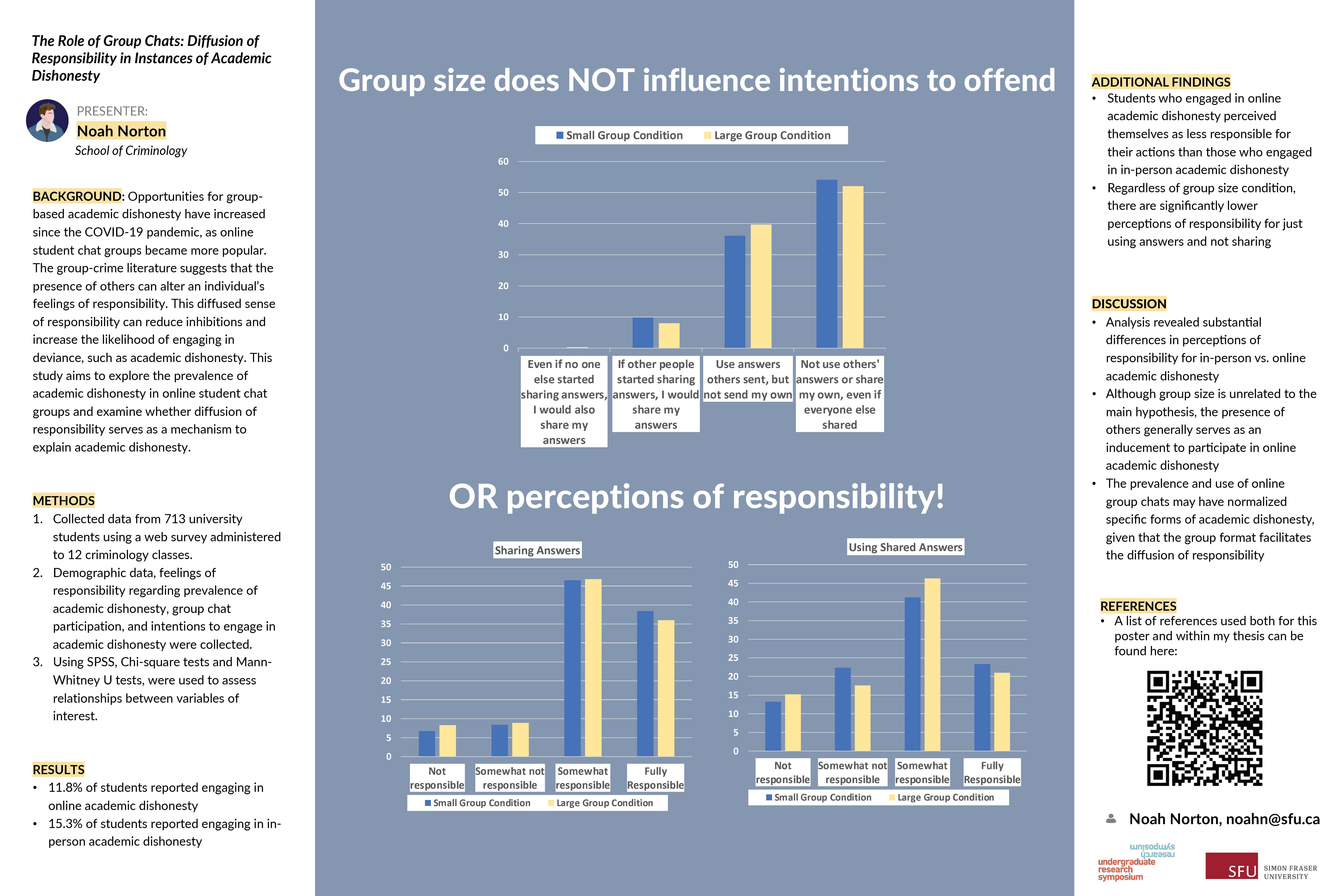Diffusion of Responsibility in Instances of Group Academic Dishonesty
Main Article Content
Abstract
Academic dishonesty is an area of concern not only in the field of education, but in criminology as well. Explanations of this behaviour largely assume that individuals engage in these acts alone, however, some of the most prevalent acts of academic dishonesty are committed in groups (i.e., cheating). Opportunities for group-based academic dishonesty have significantly changed since the onset of the COVID-19 pandemic, as online student chat groups became a primary means of communication for students. Insights from the broader literature on groups and crime suggest that the presence of others when committing crime can alter an individuals’ perception of responsibility. This diffused sense of responsibility can overcome feelings of guilt or shame and make individuals more likely to participate in crime. The current study aims to explore the prevalence of academic dishonesty in these online student chat groups and examine whether diffusion of responsibility serves as a mechanism to explain participation in academic dishonesty. A survey was administered to university undergraduate to assess 1) prevalence of participation in academic dishonesty, 2) utilize hypothetical vignettes to assess students’ feelings of responsibility when engaging in online group academic dishonesty, and 3) explore whether the size of online chat groups was related to perceptions of responsibility. Ultimately, the current study provides important insight into deviance committed in a contemporary academic context and evaluates whether diffusion of responsibility serves to facilitate the commission of this form of deviance.
Faculty Supervisor:
Dr. Zachary Rowan, School of Criminology, Simon Fraser University
Article Details

This work is licensed under a Creative Commons Attribution-NonCommercial-NoDerivatives 4.0 International License.

